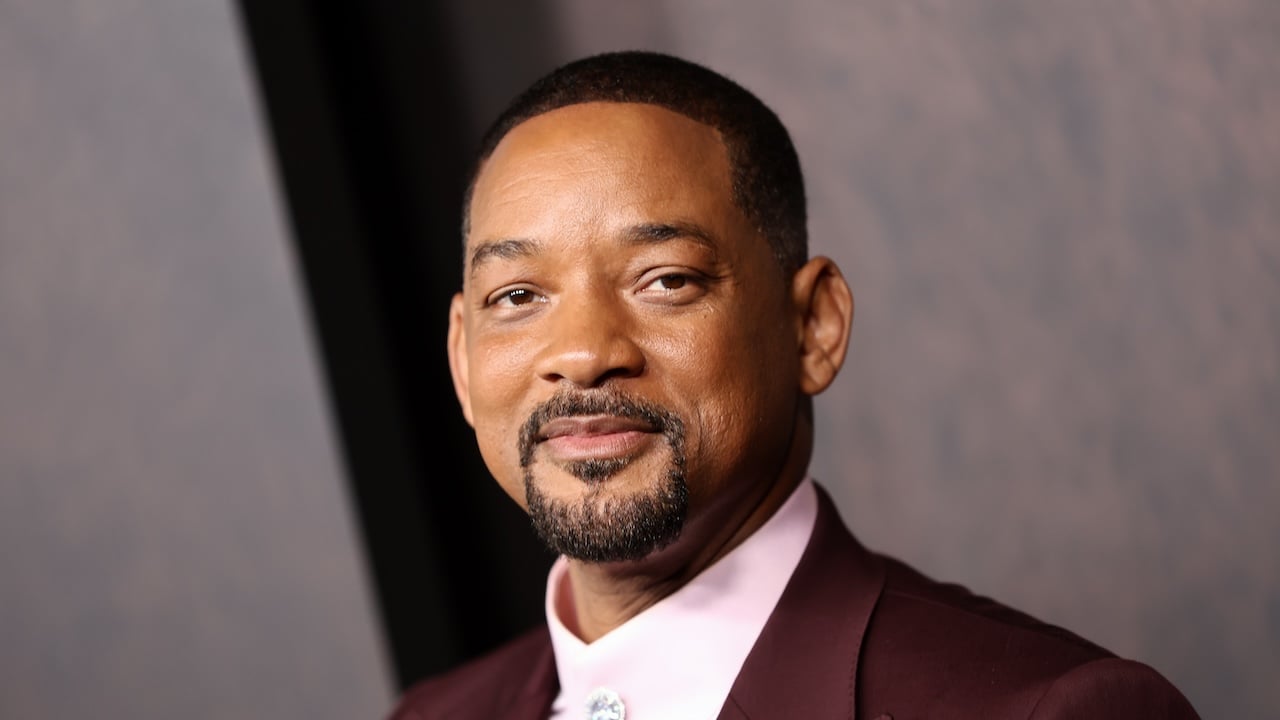The secret to coach Sydney Johnson’s turnaround of the Mystics? Joy.

If you talk to Washington Mystics head coach Sydney Johnson long enough, you’ll start thinking about Frankie Beverly & Maze.
The soul band’s 1980 hit record “Joy and Pain” is about how imperfect love can be, how in one moment you can be in bliss and the next feel utter devastation.
“Joy and pain,” the chorus goes, “are like sunshine and rain.”
When Johnson talks about what’s most important to him as he builds a new culture for his team, he always returns to the same theme: joy.
He wants to enjoy coaching these players. He wants them to enjoy playing with each other. He wants them to feel the joy of playing basketball. While an eventual championship is the ultimate goal for Johnson, joy is the guiding principle for this team. That’s even when a shot is missed or a game is lost.
Which takes me back to the third verse of “Joy and Pain.”
Over and over, you can be sure/There will be sorrow, but you will endure
Where there’s a flower, there’s the sun and the rain/Oh, but it’s wonderful, they’re both one in the same
G Fiume/Getty Images
Johnson, in his first season as the Mystics’ head coach, has taken the youngest roster in the league that was predicted to be one of the worst teams this season and turned it into one of the best stories. After a 14-26 finish last season, which began with 12 straight losses, the Mystics started this campaign 13-13 behind rookie All-Stars Sonia Citron and Kiki Iriafen.
And though the Mystics have dropped 12 of their past 15 games since that surprising start, Johnson has helped refresh the team’s culture in his image. It’s predicated on joy, no matter the pain it takes to get there.
“You want to win the whole thing, but really it’s the ride to doing it,” Johnson said.
By the time the Mystics hired Johnson in December 2024, there was little to enjoy in Washington. After winning a championship in 2019, the Mystics spent the next five seasons either missing the playoffs (twice) or being knocked out in the first round (three). The father-son, coach-general manager duo of Eric and Mike Thibault, who had been with the organization since 2013, were fired at the end of the 2024 season.
At his introductory news conference in February, Johnson made his first mention of joy.
“As a team, we will carry the core values that drive this franchise – excellence, togetherness, joy, competitiveness, and accountability through everything we do,” he told reporters. “From the way we practice and play to how we show up in the community and engage and inspire our fanbase.”
He mentioned it before a July 8 game against the Chicago Sky. There it was again, five days later, after a road win over the Seattle Storm.
“There’s joy,” he said, in reference to the team’s positive outlook during a rough stretch in the Storm game. “That’s all I’m asking [for].”
While Johnson, 51, was born in Lansing, Mich., he was raised throughout the country. His father, LeRoy Johnson, played basketball at Indiana and later overseas before becoming an academic. The family (Sydney Johnson has two brothers) moved a lot as LeRoy Johnson taught at universities in Michigan, Minnesota, Pennsylvania, Florida and finally Maryland.
When Johnson decided to play, it was because of his two brothers, whom he tagged along with to go hoop. (Older brother Stephen later played at Cal and overseas in Belgium.) Despite LeRoy Johnson’s basketball past, he never pushed it on his sons. As an academic, he emphasized books over baskets.
“We didn’t even barely know about all his basketball stuff,” Sydney Johnson said.
LeRoy Johnson taught African-American and African studies at various schools, including Michigan State, where a future Hall of Famer, 12-time NBA All-Star, three-time MVP and five-time NBA champion named Earvin “Magic” Johnson was one of his students.
LeRoy Johnson made sure his sons were very aware of their blackness, their strengths, accomplishments and struggles. When Sydney Johnson was a young boy, his dad would tell him before bedtime that he was a beautiful Black boy who was perfect just the way he was.
“It is my identity,” Sydney Johnson said.
Ethan Miller/Getty Images
Johnson played at Princeton from 1993 to 1997. He was Ivy League Player of the Year his senior season after helping lead the Tigers to a 24-4 record, 14-0 in conference play, and a trip to the NCAA men’s tournament. After playing professionally in Italy from 1998 to 2004, Johnson returned to the United States to coach.
Throughout his basketball journey, Johnson always connected with his coaches, whether it was his father when he started playing, or the late Pete Carril, who coached Johnson at Princeton. Those coaches made such an impression on Johnson that he wanted to pass that knowledge to the next generation.
“I wanted to try to have that impact,” he said. “I wanted to try to give that back to players.”
In 2004, Johnson was hired as an assistant at Georgetown, coached by John Thompson III, the Hoyas’ legendary coach’s son. After three seasons, Johnson was hired as the men’s head coach at Princeton, where in 2011 he took the Tigers to the NCAA tournament for the first time in seven seasons. He then spent time as a head coach or assistant at Fairfield (2011-19), Team USA (2019-23) and Air Force (2020-21). During the 2024 WNBA season, Johnson was an assistant with the Sky.
Over the years, whether as a player or coach, Johnson picked up on the traits he’d one day want to exhibit as a head coach. Thompson III always listened intently to his Georgetown assistants, gathering their input in decision-making. That approach to coaching made Johnson believe in himself and feel valued.
“It made me feel like I had something to offer,” he said.
Carril was an in-your-face coach who didn’t sugarcoat things. “He’s an intense guy,” Johnson told The Baltimore Sun in 1996. But Carril was honest, and Johnson said his hard truths were impactful.
“You’re going to get caught in your feelings or you’re going to take something that might sting, but it could lift you up if you take it,” Johnson said.
That being said, the days of the tyrannical coach are in the past. Coaching through fear is outdated, and Johnson seems to take pride in letting it be known that’s not his style.
Just as today’s women’s players no longer wear asymmetrical bobs, they also are rarely subjected to verbally or mentally abusive coaching. Johnson said players want to be viewed as people, not just athletes. If you dress them down for making five turnovers in a game, you won’t get the best out of them going forward.
“You just can’t effectively coach today’s player from fear and being somewhat of a dictator,” he said.
Alika Jenner/Getty Images
Instead, Johnson has fostered a warmer environment. He shares his feelings and stories about himself, reaching out to get to know his players on a personal level. He’s mindful of his players’ feelings and mental health, and he reminds them to always express their appreciation to their loved ones. When he walks into the gym each day, Johnson said he tries to exude what he expects from his players: respect, desire, humility, and, of course, joy.
“True leaders,” he said, “whatever they ask, they do.”
When Johnson struggled in a game during his playing days, he said he felt like he was on a lonely island of failure. He didn’t want his players to experience that.
“I don’t want you to feel like you don’t have any value to me or the people around you just because you didn’t play well,” Johnson said.
After a 91-81 home loss to the Las Vegas Aces on Aug. 23, Johnson and starting center Shakira sat next to one another at the postgame news conference. They later exited the room together, and in a hallway leading to the practice gym, Johnson hugged Austin, a fiery fourth-year player. He told Austin that he was proud of her despite the loss: Austin had 18 points and four rebounds, but the Aces’ A’ja Wilson, her primary defensive assignment, scored a game-high 36 points.
Austin said she’s never had positive coaching like this before. As a rookie in 2022, she said a coach told her to get used to riding the bench. That method of communication is the opposite of Johnson’s encouraging leadership.
“He doesn’t allow the results to dictate what he says and how intentional he is with his positivity,” Austin said.
Encouraging joy can be misunderstood as being soft or too lenient. A Washington Post columnist wrote in July that Johnson “preached joy and togetherness so much that you want to roll your eyes.” A few weeks later, a Mystics team reporter put a jar in the press conference for Johnson to put money in when he says the word “joy.” It’s like a swear jar for compliments.
But don’t get it twisted: There are some still moments of raised voices and hard coaching. Watch Johnson react to a referee’s call that he disagrees with, and you’ll see firsthand that there’s still accountability for a team that’s suffered four losing streaks of three or more games this season.
“Yesterday, in the locker room or during the game, it wasn’t all hugs and kisses,” Johnson said the day after a 67-56 loss to the Sun on Aug. 21.
Johnson wants his players to enjoy and love what they do and who they do it with. There should be joy in competition, in going hard, in overcoming challenges, and in going at your opponent. All together.
The Mystics started the season with the league’s youngest roster, which means part of Johnson’s and his staff’s jobs are to teach proper preparation, teach offensive and defensive reads and emphasize the importance of playing all 40 minutes. Washington also has one of the least experienced groups. Excluding Alysha Clark, who was traded to Washington on Aug. 5, the entire roster has played in just 34 total playoff games; 31 games were played by just one player, center Stefanie Dolson.
But the team plays hard. In the first game of the season, the Mystics erased a 12-point deficit to beat the Atlanta Dream 94-90. In their next game, they trailed by as many as 15 to beat the Connecticut Sun 90-85. In mid-July, they came back from down 15 to top the Aces 70-68.
Amy Abramson-Denhoff/Icon Sportswire via Getty Images
“We can lose three games in a row, win three games in a row, he’s going to act the same way,” said third-year guard Jade Melbourne. “Just the way he pours into us and can get the best out of us, too, it’s a different style. It’s very uplifting, very positive all the time.”
I tell Johnson that I am actually surprised by his style of coaching. American men of a certain age grew up in an era when boys were not encouraged to express emotions, and feelings were not openly shared. To openly desire and cherish joy goes against the ideals of traditional masculinity.
Johnson explains it this way: He doesn’t attend church every Sunday, but he has faith. He’s been blessed in his life and is fortunate for all of it. Having joy is one of life’s most precious accomplishments, so why wouldn’t you want to spread it to those you love.
There’s a choice to be made about what kind of experience you want to have as a coach or player: If you ride the wave of just results, this would be a miserable job. Johnson has seen success: He made it to the NCAA men’s tournament as a player and as a coach. Georgetown made the Final Four in 2007, and he won gold as head coach of Team USA’s 3×3 under-23 World Cup team.
While all that was great, the best part for Johnson was the journey along the way, he said. Success is the ultimate goal, but what’s success if you can’t enjoy it?
“Winning isn’t enough to fill the whole void,” Johnson said. “We aim to win a championship, but if you’re doing it with people you hate it’s going to be miserable.”
What's Your Reaction?
 Like
0
Like
0
 Dislike
0
Dislike
0
 Love
0
Love
0
 Funny
0
Funny
0
 Angry
0
Angry
0
 Sad
0
Sad
0
 Wow
0
Wow
0
































